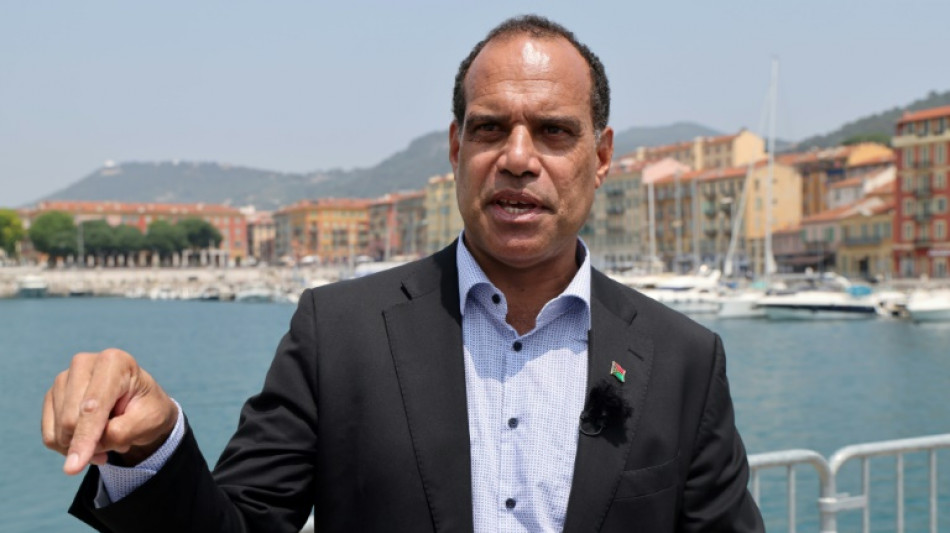
-
 Hamilton slams Italian media speculation on Ferrari and Vasseur
Hamilton slams Italian media speculation on Ferrari and Vasseur
-
Warholm sets world best in 300m hurdles in Oslo Diamond League

-
 Duplantis dominates pole vault at Oslo Diamond League
Duplantis dominates pole vault at Oslo Diamond League
-
Tottenham hire Brentford's Frank as new manager

-
 Alfred scorches Diamond League 100m in Oslo
Alfred scorches Diamond League 100m in Oslo
-
Reed makes only fourth albatross in US Open history

-
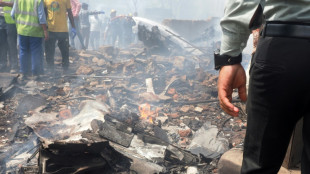 India plane crash: What we know
India plane crash: What we know
-
Cummins says bowler-dominated WTC final still a 'good Test'

-
 At least 265 dead in India plane crash, one passenger survives
At least 265 dead in India plane crash, one passenger survives
-
Death toll in S.Africa floods rises to 78
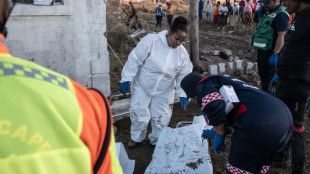
-
 Trump boasts troops making Los Angeles 'safe'
Trump boasts troops making Los Angeles 'safe'
-
Trump moves to block California electric cars program

-
 Air India crash latest test for new Boeing leadership
Air India crash latest test for new Boeing leadership
-
Trump calls on Israel not to strike as Iran defiant before talks

-
 Cummins and Carey shine as Australia remain on top in WTC final despite collapse
Cummins and Carey shine as Australia remain on top in WTC final despite collapse
-
Los Angeles Grand Slam Track meeting cancelled: sources
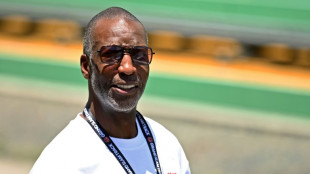
-
 King Tut gold mask to leave Cairo museum after nearly 100 years
King Tut gold mask to leave Cairo museum after nearly 100 years
-
California sues Trump for scrapping state's EV rules

-
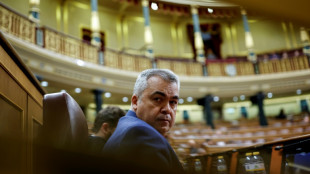 Spanish PM says knew 'nothing' about corruption case
Spanish PM says knew 'nothing' about corruption case
-
Spaun grabs US Open lead with Scheffler set to attack Oakmont

-
 Trump says Israel should not strike Iran, as nuclear deal 'close'
Trump says Israel should not strike Iran, as nuclear deal 'close'
-
Sane joins Galatasaray from Bayern on free transfer

-
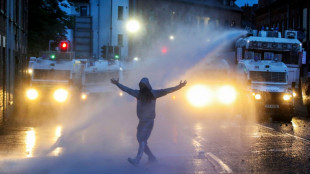 Migrants hid in wardrobes to flee N.Ireland unrest: police
Migrants hid in wardrobes to flee N.Ireland unrest: police
-
Pulisic hits back at ex-USA players over absence criticism

-
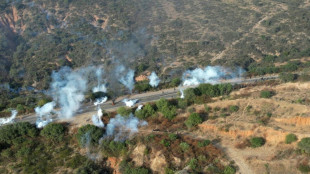 Fourth policeman killed in clashes with Morales backers in Bolivia
Fourth policeman killed in clashes with Morales backers in Bolivia
-
South Africa's Rabada and Ngidi spark Australia collapse in WTC final

-
 Stewart sprints to Dauphine fifth stage win, Evenepoel holds lead
Stewart sprints to Dauphine fifth stage win, Evenepoel holds lead
-
Jury dispute triggers mistrial on Harvey Weinstein rape charge
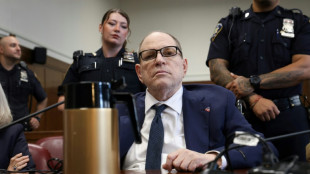
-
 One survivor after London-bound plane with 242 on board crashes in India
One survivor after London-bound plane with 242 on board crashes in India
-
Heir to an empire, Ferdinand Habsburg seeks new crown at Le Mans

-
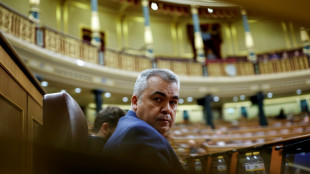 Top Spanish ruling party official resigns over corruption case
Top Spanish ruling party official resigns over corruption case
-
Ukraine's Zelensky hopes to push Trump on US Russia sanctions at G7
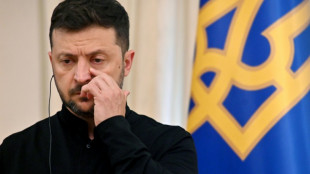
-
 De Bruyne signs for Napoli after leaving Man City
De Bruyne signs for Napoli after leaving Man City
-
Australia's Cummins rips through South Africa in WTC final before Rabada strikes again

-
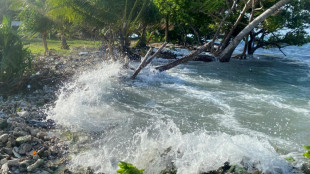 'We show up': Pacific leaders apply pressure at oceans summit
'We show up': Pacific leaders apply pressure at oceans summit
-
Protests over police killing in Kenya as govt presents budget
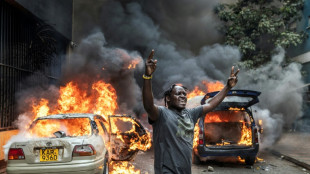
-
 Mehidy Hasan Miraz to lead Bangladesh ODIs
Mehidy Hasan Miraz to lead Bangladesh ODIs
-
The most eye-catching products at Paris's Vivatech trade fair

-
 Spaun grabs US Open lead with McIlroy, Woodland in the hunt
Spaun grabs US Open lead with McIlroy, Woodland in the hunt
-
Dollar dives on Trump's new trade threat

-
 Cunha completes 'dream' Manchester United move
Cunha completes 'dream' Manchester United move
-
Australia's Cummins rips through South Africa batting in WTC final

-
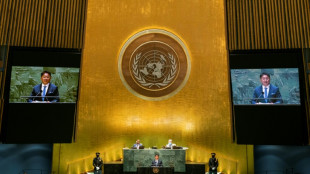 UN to vote on calling for Gaza ceasefire
UN to vote on calling for Gaza ceasefire
-
Ukraine boycott world judo champs as Belarusians compete under flag

-
 Trump hails troop deployment as California readies legal battle
Trump hails troop deployment as California readies legal battle
-
London-bound plane with 242 on board crashes into doctors' housing in India
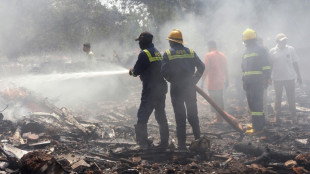
-
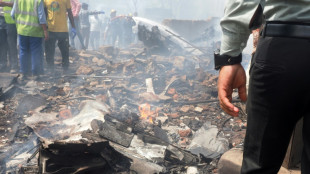 India plane crash: What we know so far
India plane crash: What we know so far
-
More arrests after third night of unrest in N. Ireland town

-
 Hundreds of civilians were tortured by Wagner mercenaries in Mali: report
Hundreds of civilians were tortured by Wagner mercenaries in Mali: report
-
Spurs set to name Brentford boss Frank as new head coach: reports


'We have to try everything': Vanuatu envoy taking climate fight to ICJ
Tired of pleading for countries to act on climate change, Vanuatu upped the ante -- it asked the world's highest court if governments were legally obligated to do something about it.
The landmark case has given Ralph Regenvanu a front row seat to history.
As Vanuatu's environment minister, he has taken the decades-long climate fight by Pacific nations to the International Court of Justice (ICJ) in The Hague, hoping to safeguard their islands' survival.
Regenvanu has called the case among the most consequential "in the history of humanity".
A ruling could come as early as next month.
This interview, conducted by AFP on the sidelines of the UN Ocean Conference in Nice, France, has been edited for length and clarity:
Q: Why did Vanuatu go to the ICJ?
A: "We thought it was necessary to take a legal approach to the issue of climate change because we feel that the UNFCCC (United Nations Framework Convention on Climate Change) process, which has been going for 30 years, has not done anywhere near enough.
"We agreed to ramp down greenhouse gas emissions. We've seen the highest levels ever just recently. We've talked about climate finance. We haven't seen that. These pledges that were made in Paris? We've not seen them having any effect.
"And so we wanted to see if we could get international law to actually start to impose some requirements."
Q: Has it worked?
"This request for an advisory opinion from the ICJ has been historic. It was the first request from the United Nations General Assembly for an advisory opinion that was unanimous. No country opposed requesting this.
"It has also mobilised youth. There's this global climate justice movement of youth now, and we have many of them here (in Nice). It's really raised the consciousness and political savvy of youth to engage with these kinds of processes.
"A lot of countries would talk about what they're doing on climate change. But when we got to the court, it became very clear that they weren't prepared to do what they were talking about. So it exposed the hypocrisy of a number of countries as well."
Q: Do you think others will take the legal route?
A: "We're going to have to do a far greater range of things outside these UN processes -- in courts, in each and every fora we can find, to push for real climate action.
"We went to the International Tribunal of the Law of the Sea -- we got an advisory opinion. We're waiting for an advisory opinion from the International Court of Justice on the same question: the obligations of states to prevent greenhouse gas emissions, and what are they consequences if they don't.
"Along with Fiji and Samoa, we've submitted a resolution to the Rome Statute -- the International Criminal Court -- for a new crime of ecocide to be created. That's in process.
"We will continue to call for the strongest action in all fora including this one, the United Nations Ocean Conference.
"Anything and everything we can -- because what we're doing is not enough."
Q: Why keep going if you're constantly disappointed?
A: "Going to the climate COPs is a very depressing exercise. Last year, for example, Papua New Guinea said we aren't going anymore. I could perfectly understand that.
"The problem is, when we're not at the table, we're on the menu. And so we have to be there, so people see us and realise -- and hopefully have a little bit of conscience -- that there are these people in the world who are going to perish as a result of your actions."
Q: Why is this ocean summit important?
"The ocean has been feeding us. It's been our spiritual home. It's been our highway. It has been the basis of our cultural heritage, our identity. We've been surviving off the ocean for as long as we've existed, which is thousands of years.
"And we see the change, and the change is impacting us. We know that if we don't address climate change, greenhouse gas emissions, and if we don't take serious steps to reverse global warming, but also keep the biodiversity that has always been sustaining us, it threatens our very existence."
Ch.Havering--AMWN